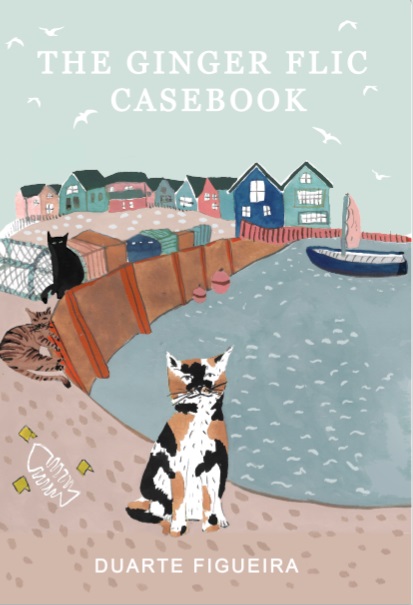By Richard
Dusk – sumptuous – opulence – inured – angst – whisper – nemesis – tryst. I liked the sound of words when I was a little boy. Of course I did not know what they all meant. My father understood, he was a word man, a publisher, he smiled and said nostalgically, “Ah yes…” Perhaps he thought I would follow him, but no…
I did not have a writing life. I had ideas and coined phrases about people when I was in my early 20’s, but they did not blossom. After sitting in front of my typewriter for hours, I just got up and went for walks. I saw a lot of Chelsea and Fulham, and had many new ideas. But I soon decided that I was happier not trying.
Sculptor? Photographer? I ended up making documentary films, where there was always writing needed, starting with a proposal, then through ideas to narration and drama sequences. I used to search for new writers. They were nice people and I made a few friends but most of their results were disappointing. Then economy spoke. Producers don’t want to spend money, and if they can hire one person instead of two, they’ll come in under budget.
“The script is part of the job, old chap. You want to work, don’t you?” So my fingers settled on the keyboard.
“Pretty good, old chap. Got another one for you.” So I was working, but with other dreams. Fiction is about people, it gets personal, and that’s what I wanted.
“You’ll be up against it, old chap. Everybody’s a writer these days.”
“So are they all lonely?”
“Writing is something you do on your own. Get used to it. Got another one for you about computers…”
It wasn’t until I was forty-something, in the Michoacan Hills in Mexico, living in an American ex-pat community, sharing a printer with a woman novelist who used to be a male painter, that I discovered letters. I would write 15 pages to people I used to know in London. I couldn’t stop. Others got 20 pages. I hoped they weren’t busy when my letters arrived. It took time, so I told myself I could always just not do it, then I found I could stop. It was a revelation, like recovery from an addiction. For years I was free.
Coming home from another life in the Caribbean I felt dry, cold and empty. I needed something to do while the film industry came to terms with my desertion and offered me jobs again. I did a short course at the City Lit. I was not sure what I was getting from it, but I met two lady poets who ran a retreat for writers near Perpignan in the French Midi. It was not until I got to Paziols that I learned that the writers were all women—nine of them—with me the only man. In the afternoons we sat around a rough wooden table in a French Farmhouse and read aloud extracts chosen by the two poets.
Overcoming my intimidation, it fell to me to read a verse from Midsummer by Derek Walcott. It turned me inside out. Only I knew that the poem was describing Port of Spain, Trinidad, that place I had lived in for two years before returning to London leaving behind almost everything I knew and loved. That was it for me. I was up at five the next morning, wandering in the half-light with tears streaming, and as soon as I thought I could type without waking the nine women, I started something, I had no idea what. I read a few paragraphs to the two poets.
“You did this since yesterday? What is it going to be?”
“Yes, since teatime actually, and I don’t know what it is.”
“Then I can tell you this will not turn out to be a short essay.”
Nor did it. Seventy pages showed it to be a novel. But I did not know how novels worked. I listened too much to other beginner writers. I got confused. I knew how to stop and I did, for decades.
I have had several ideas for other books, all novels, and mostly with fictional heroes colliding with famous historic figures: Joseph Banks the explorer, President Kennedy. It is as if I have got lost in history searching for my inspiration.
A few years ago Whitstable became my world and at the WhitLit Festival in 2019 I met Lin White standing behind a table covered in short story books, all by Whitstable writers, and soon after that I arrived at the Marine Hotel in Tankerton and met the buoyant bunch calling themselves Writers of Whitstable. Then I wrote stories set in Whitstable. Within a year a runner had reached out from the short story group and I was among five new novelists who broke surface together. It was clearly the moment to think again about my lost work, and with much encouragement from those others I am now cutting new chapters. I can’t wait to finish because I have an idea for another novel, set on the Isle of Sheppey in 1817, to begin after this one.
I still love those beautiful words: Dusk – sumptuous – opulence – inured – angst – pristine…
She left at dusk in sumptuous opulence, inured to the angst that whispered of her nemesis. She was sanguine, she owned the panacea, fear was for others. Thin black clouds severed the pristine blue, and she felt a tiny shiver. There would be hazards, but they had told her she was invincible. This was her first tryst alone. She hesitated…
Perhaps I have a story coming?

